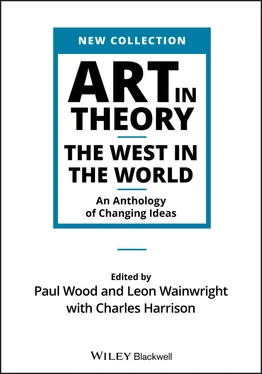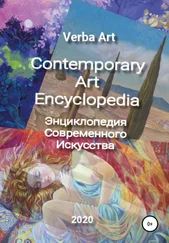Birds’ nests from China.
Indian conjurer’s rattle, wherewith he calls up the spirits.
Indian pagod.
The idol Osiris. Anubis the Sheep, the Beetle, the Dog, which the Egyptians worshipped….
A circumcision knife of stone, and the instruments to take up the praeputium, of silver.
Jew’s phylacteries with the Commandments, writ in Hebrew.
A piece of stone of the Sarrige castle where Helen of Greece was born.
A piece of stone of the Oracle of Apollo.
A piece of the stone of Diana’s tomb.
An orange gathered from a tree that grew over Zebulon’s tomb.
Several sorts of magnifying glasses: triangular, prisms, cylinders. […]
A trunnion of Captain Drake’s ship.
Divers sorts of Indian jakes.
Several sorts of cymbals.
Cassava bread 2 sorts.
The Padre Guardian’s staff of Jerusalem, made of a branch of one of the 70 palm trees of Elam, which he gave to Sir Thos. Roe.
A glass horn for anointing kings.
2 Roman urns. […]
A hand of jet usually given to children in Turkey, to preserve them from witchcraft.
IX [X] Warlike Instruments
Poleaxe with a pistol.
Poleaxe with a pistol with a mill and crossbow in it for either arrow or bullet.
German poleaxes.
Count Mansfeld’s poleaxe, called Persuasion.
Indian square‐pointed dagger, broad and flat.
Japan sword and dagger.
Moors daggers, 2 sorts.
Several sorts of daggers.
Javelin – Japan, Turkish.
Indian lance.
Moluccan sword.
Targets [shields] from the East India of reeds, leather, skins and crocodile skin.
Bows 12, arrows 20, quivers 12, darts 60: from India, China, Canada, Virginia, Guinea, Turkey, Persia.
Drums two sorts: 1 from Guinea of a whole piece of wood; 2nd from India of copper.
Targets several sorts viz Knights Templar, Britain, Isidore the Monk, Roman, Japan, Grecian …
Indian drumming target.
Guinea drum made of one piece.
China armour.
Knife wherewith Hudson was killed on the North‐West passage, or Hudson’s Bay.
Knives from Guinea, 3 sorts.
Knives from Muscovey.
A Damascus knife perfumed in the casting.
Roman darts headed with copper, taken near Pontefract, Yorkshire.
Models for a cannon, with the appurtenances.
Tomahawks, 6 sorts.
Poisoned creeses or daggers, 2 waved, 2 plain.
Iron manacle taken in the Spanish fleet [15]88. […]
X [XI] Garments, Vestures, Habits, Ornaments
An Arabian vest.
A Russian vest.
A Portugal habit.
A Turkish vest.
A Brackman’s vest of leaves of aloes.
A Virginian habit of bear’s skin.
A Babylonian vest.
A Greenland habit.
A match coat from Virginia, of feathers, deer skin, Canada.
Match coat from Greenland of the entrails of fishes.
Pohatan, King of Virginia’s habit all embroidered with shells or [of] Roanoke.
A match coat of Virginia made of racoon skins.
Crowns: Indian, Amazonian …
Henry the 8 his stirrups, hawks hoods, gloves.
Barbary spurs pointed sharp like a bodkin …
Boots from: Lapland, Greenland, Muscovy, Babylonian, Russian, Persian.
Shoes to walk on snow without sinking.
Spurs from Turkey.
Moor’s cap …
Tartarian whips.
Scourges of sinews.
Disciplines of wire, quilted cotton.
A friar’s discipline with silver rowels.
A lacrymatical urn for tears, of glass. […]
Shoes from: Peru, Canada, Mogull, China, Japan, Coromandel, Barbery, Turkey, Venice, Rhodes, Malta, Greenland, Poland, Portugal, Spain, Russia shod with iron, East India.
Sandals of wood, from China.
Several made of twigs.
Several sorts of sandals.
Chopines [a raised shoe] for ladies from: Malta, Venice.
Woman’s breeches from the Abyssenes.
Divers nightcaps made of grass from the West Indies.
Turkish belt wrought with gold.
Rich vest from the great Mogull.
Napkins made from the rinds of trees.
Variety of Indian crowns made of divers sorts of feathers.
Several attires and ornaments made of most beautiful feathers.
A hat band of glass spun into fine threads.
Variety of chains, made of the teeth of serpents and wild beasts, which the Indians wear.
Bracelets from Guinea.
Bracelets of Indian fruits.
Several steel chains of curious work from Spain.
Black Indian girdles made of Wampam peek, [‘Wampumpeag’ (Algonquin)] the best sort.
A bracelet made of thighs of Indian flies.
Purses of the barks and rinds of trees.
A purse made of a toad skin, a hand full long.
Virginian purses embroidered with Roanoake.
A coat lined with Agnus Scythicus [Scythian lamb, possibly astrakhan?].
West Indian thread.
A Roman lamp.
A leather tobacco pipe.
A Guinea lantern.
Indian ladle.
Dishes of gourd shells, Indian.
Guinea drinking cups made of birch.
Indian pillow.
Chafing dish, gridiron, spits and to roast eggs and apples; all to be done with one fire, and all in a model of iron.
Desk for a book, rack to hang a cloak on, of carved whalebone.
Indian cradle.
An Indian hollow low stool.
An Indian little round table.
China ware, purple and green.
Mazer dishes.
Indian long pepper boxes.
Cup of rhinoceros, unicorn and albedo [narwhal?] horns.
Divers dishes of mother of pearl.
A branched candlestick turned in ivory.
An Indian dish made of excellent red earth, with a nest of snakes in the bottom. […]
Skates to slide with.
Hammocks, five several sorts.
A Portugal‐whisk of hair to beat away flies from horses and camels.
Tobacco pipes, 30 sorts from: Brazil, Virginia, China, India, Amazonia.
Visnago, a Spanish tooth‐picker.
Turkish tooth‐brush.
Gurgolets [long‐knecked earthenware vessel for keeping water cool] to pour water into their mouths without touching it.
Baskets to carry those gurgolets, Indian.
Plates made of rushes, Guinea.
Turks budget [leather pouch, or wallet].
A Turkish ink horn.
An Italian lock, custos pudicitiae [chastity belt].
An umbrella.
Ventilo’s [fans] of: Palm leaf, Turkish feathers, straw, leather, sedge.
Indian baskets 20 sorts.
German locks 6 sorts.
Fans of skin and rushes.
Tartarian saddle with stirrups of wood with a hollow wherein he keeps his meat always warm.
Divers sorts of Indian weights and scales.
Beads strung upon stiff wires, and set in foursquare frames wherewith the Indians cast account [abacus].
A Turk’s travelling bucket of leather.
An Indian leather case wrought in gold. […]
IC12 John Dryden (1631–1700) on the ‘Noble Savage’
Dryden’s play The Conquest of Granada was first performed in 1670 and published in 1672. Its elevated diction, undeviating format of rhyming couplets and lack of concern for any form of psychological or historical realism led to criticism even in its own day. The present short extract is included here because, for all its supposed shortcomings, the play represents the earliest recorded usage of a phrase that was to ring down the centuries and exert a powerful influence on the arts. The Conquest of Granada is not, however, about America, or Africa, but about the final defeat of the Moors and their expulsion from Spain almost two hundred years earlier, in 1492. Nonetheless, the hero, Almanzor, who has arrived incognito in the Moorish camp, is said to have hailed from Africa, and to have fought for the Moors at the battle of Fez, in Morocco. The famous passage spoken by Almanzor comes in response to the Moorish King Mahomet Boabdelin passing a sentence of death on him after a fight between different factions of the Moorish army. Ozmyn is another Moorish soldier. The extracts are from lines 188–91 and 201–9 of the play, on pp. 29–30 of The Works of John Dryden , vol. 12, Plays , ed. John Loftis and David Stuart Rodes, Berkeley: University of California Press, 1978.
Читать дальше












